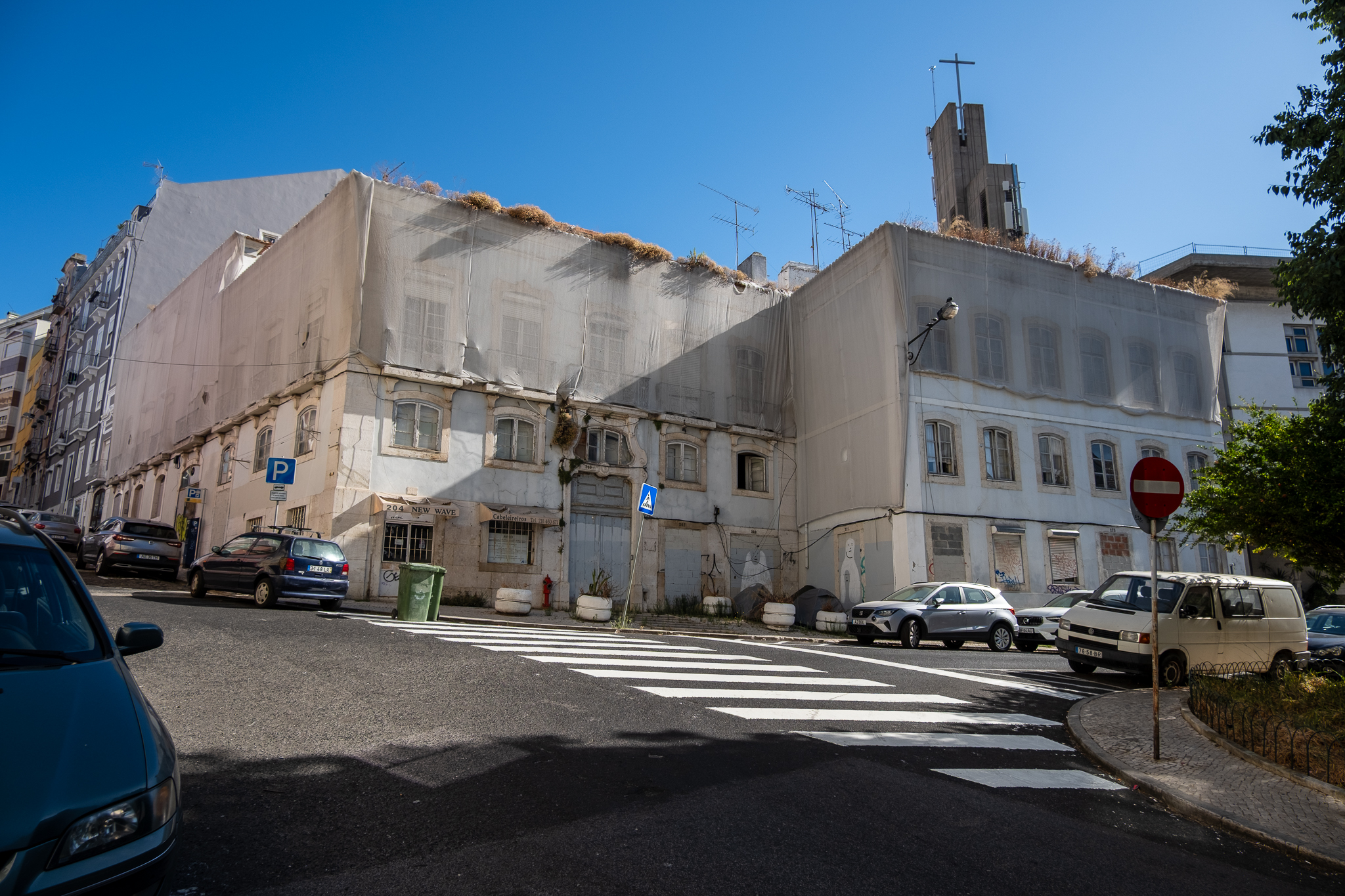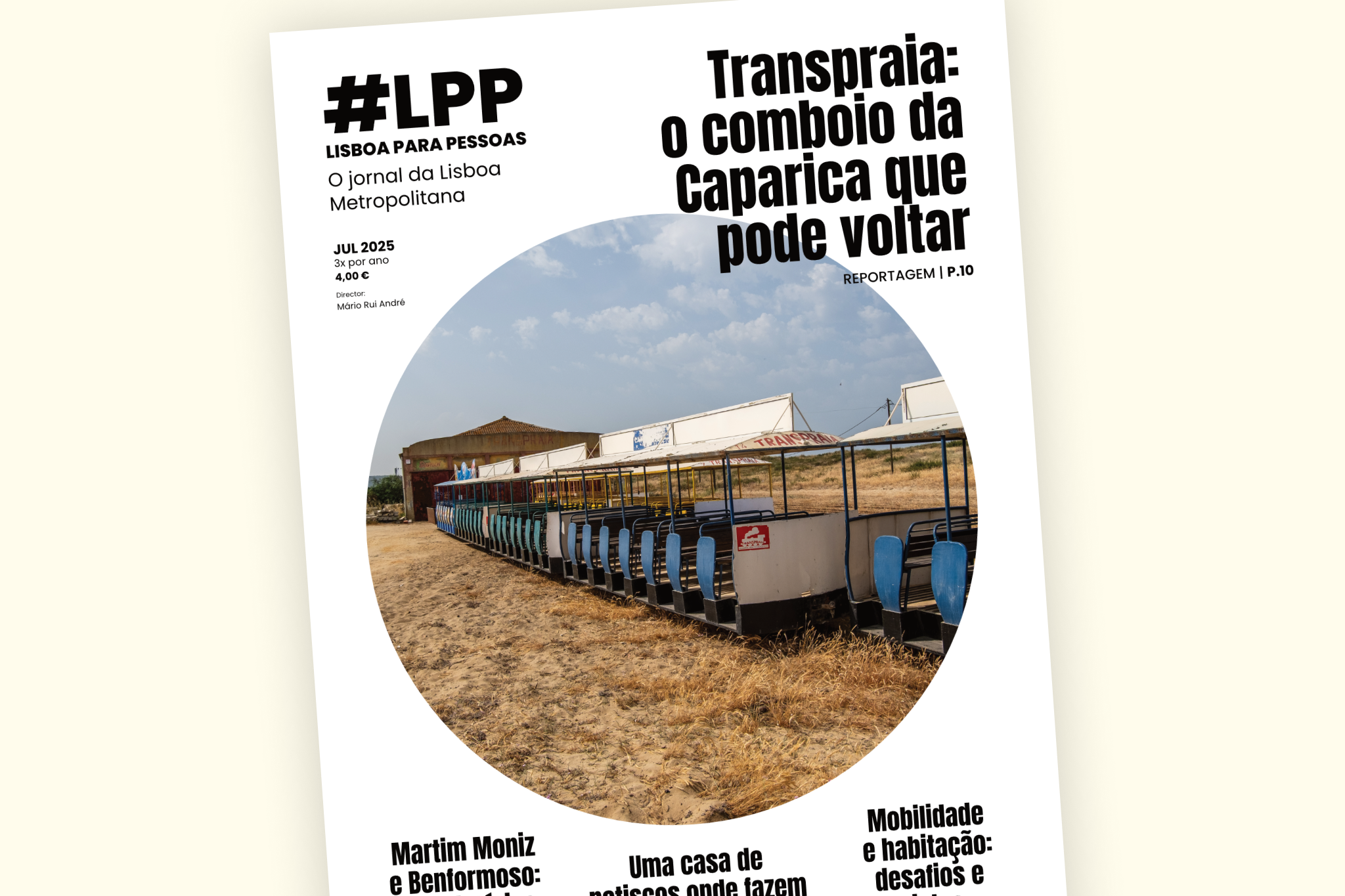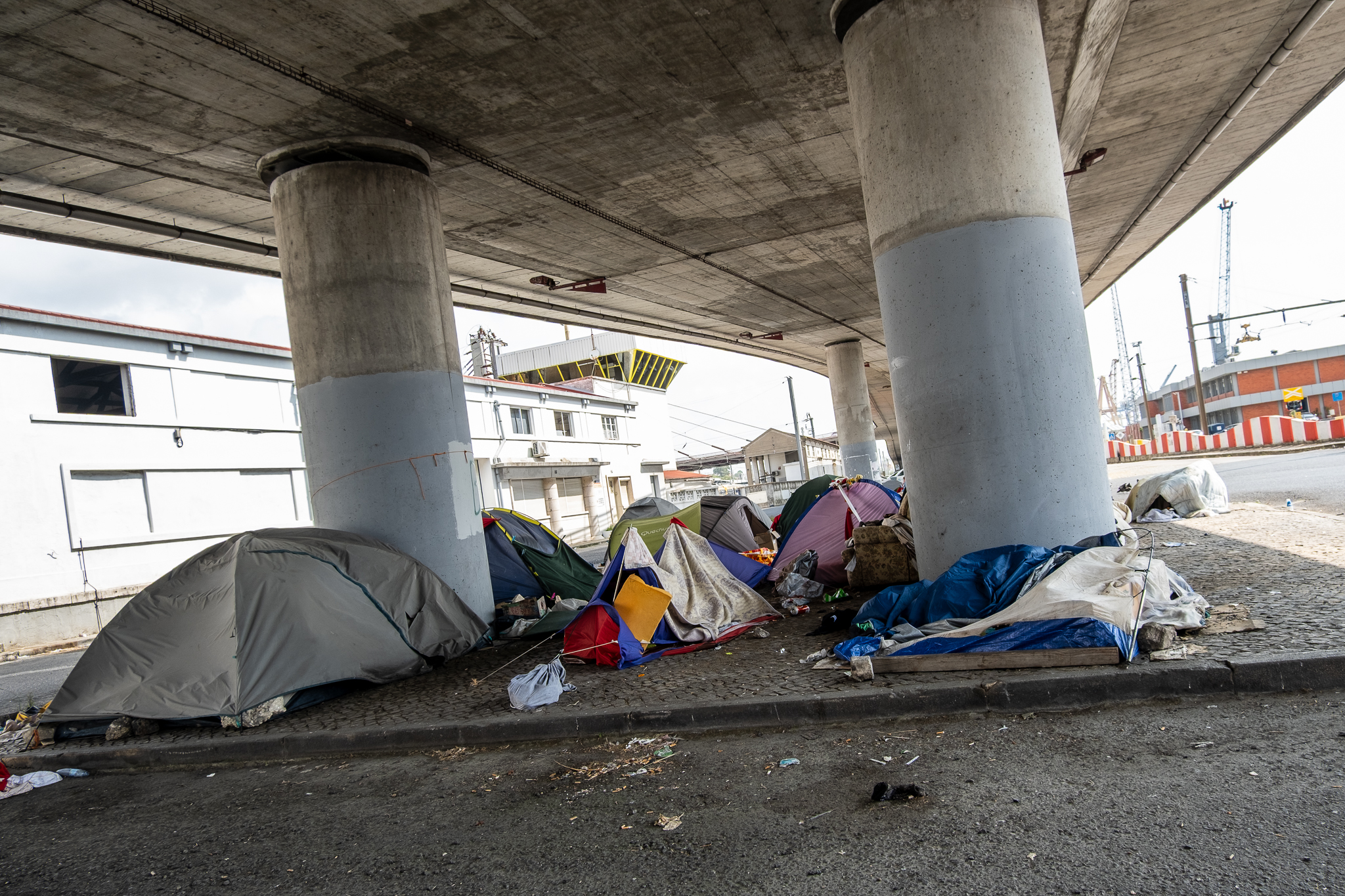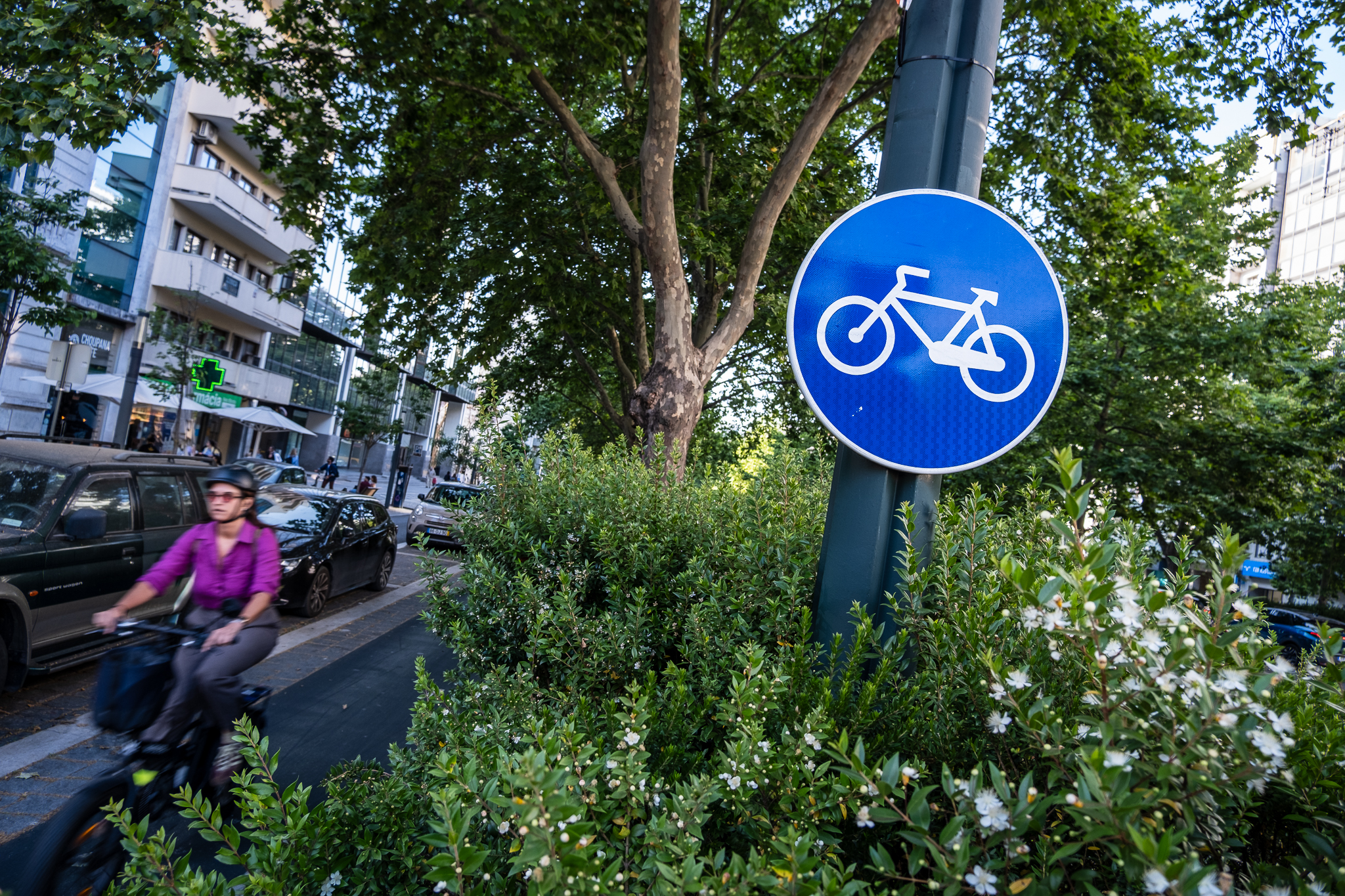At LPP, we contribute with stories from different parts of Metropolitan Lisbon, which are interconnected and cross different realities. We are not looking for a single vision of this territory, but rather a plural vision, capable of covering the entire metropolitan area.
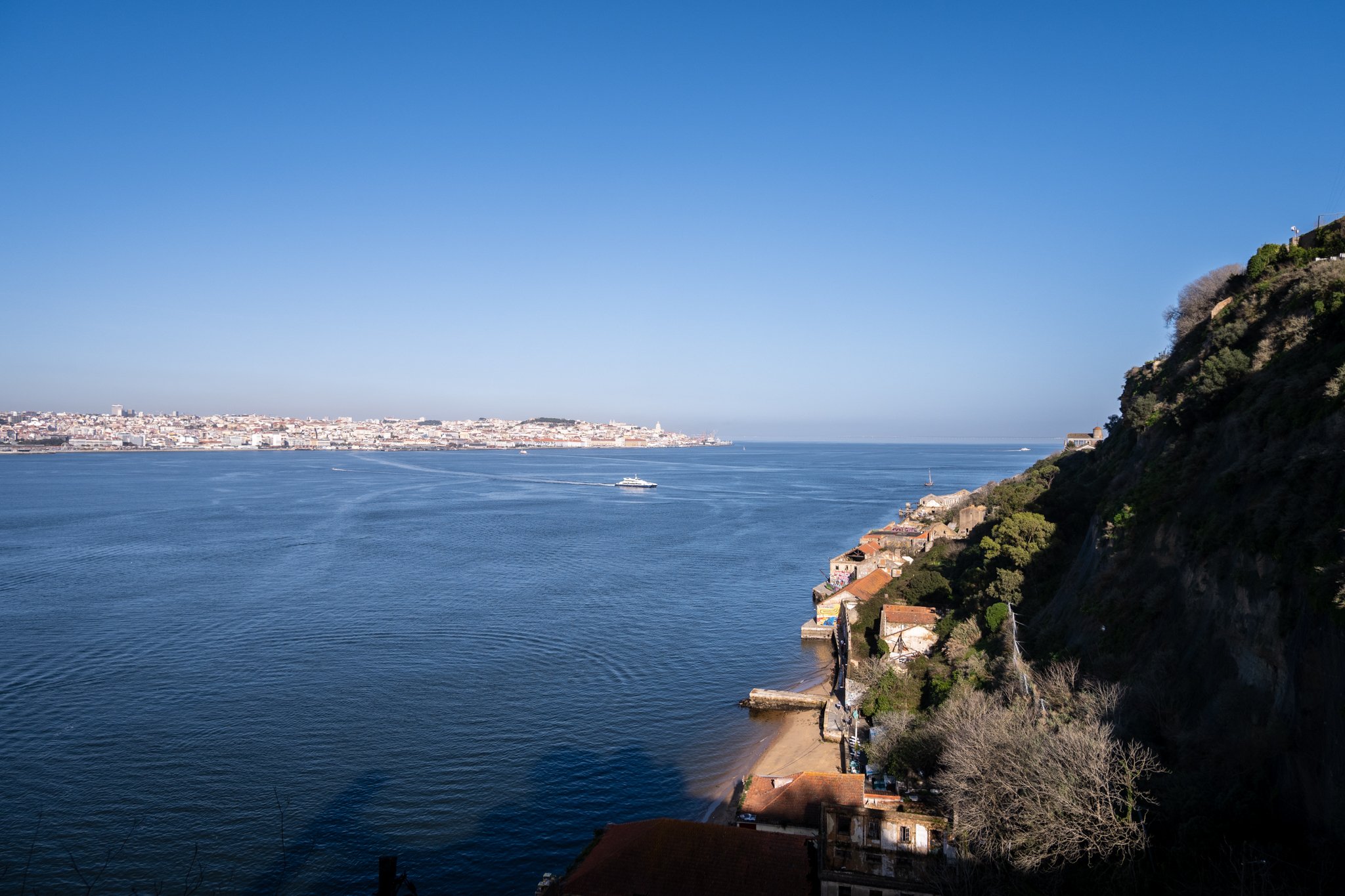
The ambition to produce a newspaper for the entire Lisbon metropolitan area was assumed from the outset. In our view, Lisbon does not end at its administrative boundaries. It extends, with different social and economic dynamics, to neighboring municipalities. It is a region with a certain continuity, where borders are fluid and sometimes blur, becoming imperceptible. How many times have we been in Algés without realizing where Lisbon ended and Oeiras began? Or in Coina, where three different municipalities intersect: Sesimbra, Seixal and Barreiro? The Lisbon metropolitan area consists of 18 municipalities, nine on each side of the Tagus. It's a region that stretches from Mafra to Setúbal, from Cascais to Vila Franca de Xira, from Almada to Montijo. More than three thousand square kilometers, home to nearly three million people.
In the LPP Journal, not only in this issue but also in the following ones, we challenge ourselves to look at this Metropolitan Lisbon, deconstructing the dichotomy of center-periphery, exploring the various centralities of this region and, above all, looking at this entire metropolitan territory as a unit - with all its diversity. With this work, we want to contribute to a metropolitan identity. An identity that includes all the others - that of our neighborhood; that of our parish; that of our city, town or village; that of our municipality. After all, in the same way that we can be Portuguese and European, we can also be from Setubal or Oeiras, and at the same time be citizens of the Lisbon metropolitan area. We are certain that public measures such as the launch of Navegante passes, which established a single fare for all public transport in the region, or Carris Metropolitana, which unified the bus service, were small contributions towards building this metropolitan identity. The construction of public spaces that cross different municipalities, such as the recent riverside path between Lisbon, Loures and Vila Franca de Xira, are also steps in this direction. However, we are still a long way from a true regional identity, from the perception of the metropolitan area as a whole.
At LPP, we contribute with stories from different parts of Metropolitan Lisbon, which are interconnected and cross different realities. We're not looking for a single vision of this territory, but rather a plural one, capable of covering the entire metropolitan area. This cannot be done in isolation from the people who inhabit each municipality, each parish, each neighborhood; and this is also why LPP has a community dimension - to look at Metropolitan Lisbon is not just to look at the 18 municipalities that make it up, but at the living forces that make each place dynamic for the people, their desires and their needs.
This is work that we began in the first issue of the LPP Journal and which we are now deepening. In this second issue, we look at two cooperative housing projects, one in Mafra and the other in Moita, we reveal a gender disparity in the use of bicycles in the metropolitan area, and we launch some discussions on public space which, despite starting from the case of Lisbon, can easily be extrapolated to other points on the metropolitan map. In this second issue, we've tried to be more decentralized in Metropolitan Lisbon, responding to one of the criticisms made about the first issue. We are aware that this newspaper is a work in progress, that there is much room for improvement, and that, like the metropolitan area, it depends on the ability to integrate and include different visions on the same platform.

